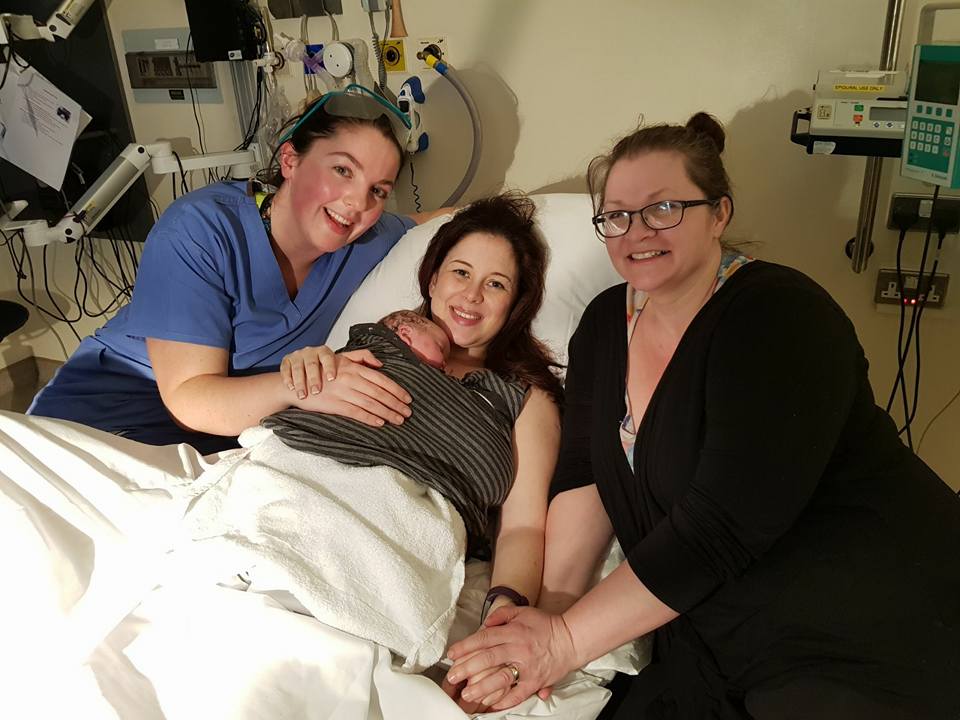The Irish Maternity System - Birth Trauma (Joe Duffy stories)
/DoulaCare Ireland have (like many others in Ireland) been listening to the stories that have been shared by families in Ireland on the Joe Duffy show over the last week. They have made very emotional listening at times. Unfortunately as doulas and childbirth educators we have been privy to similar stories over the years from women who have reached out to us, looking for someone to talk to. To know that women finally have a public platform to share their stories and to truly be heard is one of the positives to come out of the show.
At DoulaCare Ireland we support clients nationwide, and of course some will have had past birth trauma. These women and their families often feel they cannot speak about their experiences or they will be treated badly on subsequent pregnancies. Those who do speak out often feel they are brushed aside or their trauma is belittled by hospital staff.
There is very little support within our maternity service for those who have had challenging birth experiences and need someone to talk to. Many of these women often apologise for feeling upset about their experience. After all, they have a healthy baby. Shouldn’t they be OK with how things went? Everyone else seems to think they should be grateful that all is well with baby and move on. But just because you are thrilled to have a healthy baby doesn’t mean you don’t get to grieve for the birth you had hoped to have. It is OK to be upset at how you were treated during your pregnancy and labour. It is such a vulnerable time in a woman’s life and while we may be nervous about the unknown, most of us don’t think that this will be compounded by being spoken to harshly or mistreated by the people we are supposed to trust.
At DoulaCare Ireland we work closely with other supportive organisations and refer our clients to available services.
If you have an experience (negative or positive) within the HSE care you can leave your feedback on their site called Your Service Your Say. This information does get reviewed and will be brought to the person in question.
https://www2.hse.ie/services/your-service-your-say/your-service-your-say.html
We feel it is important to highlight the fantastic work that AIMS Ireland have done since 2007. They are campaigners for safe and respectful maternity care for the women of Ireland and they work tirelessly on a voluntary basis to do so. If you need advice or supports please do contact them on www.aimsireland.ie
We are also proud partners with Nurture Health, who are a national counselling service. They specialise in the care of women and their families during pregnancy and the postnatal period. They have counsellors nationwide who offer space and time to women who have traumatic experiences or have postpartum mood disorders. Irene, the CEO, always ensures their clients are seen quickly and matches them with the best counsellor for their needs www.nurturehealth.ie (and some of your hours may be covered by health insurance - Irish Life Health for example, offer hours with Nurture Health through their Parenting Path packages for new families.)
Some women find it helpful to get their notes from the hospital. They can be requested by writing into the Freedom of Information Officer in the hospital attended, with Name, Date of Birth and any other relevant details. The applicant must mention that they are requesting their notes under the Freedom Of Information Act in order to receive them free of charge. They will write back with a standard letter saying they will give a response within 28 days, before sending on the notes on. If desired and the Mum feels able to do so they can then request to meet with the Head of Midwifery or with your Obstetrician to have a review of your notes (AIMS Ireland also offer this option).
Many of the stories shared over the last week have mentioned women being alone and frightened or not understanding what was happening. With DoulaCare Ireland these situations never arise. With our agency model, each client has their chosen doula but also a back up doula. They also have the support of our full team of 35 doulas - all fully Garda Vetted. This means no matter how long a labour and birth lasts (4 day induction for example) our clients will have constant support from a known doula. They also have the knowledge and experience of 35 doulas to tap into at any point. We have women with diverse backgrounds in our team, from women health physiotherapist, midwives, nurses, yoga instructors, antenatal educators and much more. While our role is not to speak for you during labour we are there to help facilitate conversations between client and their health care provider, encouraging the Mum to ask questions if it looks like there is a lack of understanding on their part.
Doula support is scientifically proven to reduce traumatic experiences and postnatal mood disorders. A Cochrane Review 2017 showed:
Women who had doula support were:
more likely to have spontaneous birth
more likely to have shorter labour
less likely to use pain medication
less likely to have Caesarean birth
baby less likely to have low Agpars
Lower levels of Postpartum Mood Disorders
Women who had doula support had:
31% decrease in use of Pitocin
28% decrease in Caesarean
12% increase in Spontaneous Vaginal Delivery
9% decrease in use of pain relief med.
14% decrease in baby going to SCBU
34% decrease in risk of being dissatisfied after birth
We welcome the discussions on Joe Duffy show and thank the team in RTE for opening up the space for these women to share their story and finally be heard. It is shocking how many women have experienced trauma and remain silent. We hope that women will be able to find their voice, to speak up for their rights and to get the support they deserve. We also hope that those working in the maternity system listen and work to implement change. It must be hard for anyone who works in this area who actively supports and cares for women in kind and compassionate ways to hear these stories, as this is not how they would ever treat anyone in labour themselves. However, the myriad of stories from all over the country show that there is a systemic approach to treating women that needs to be addressed and changed for things to improve.
Sharing these stories is the first big step. Well done to every single woman/partner/supporter who has spoken out. Your strength will be a part in driving change for all the women and their families who will be entering into the Irish maternity system.
We are here to support all women and their families. Get in touch if you need compassionate care postnatally to help you recover from a traumatic experience, or if you are embarking on a subsequent pregnancy. Your voice will be heard.
info@doulacare.ie






